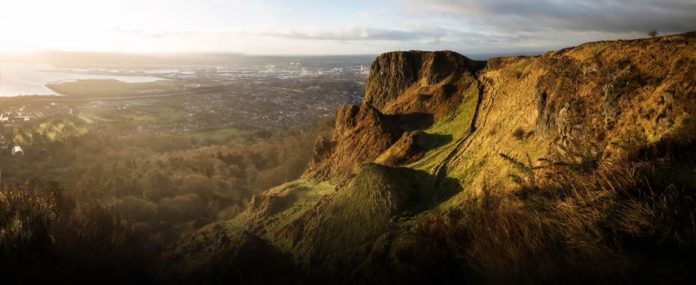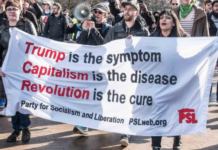There is still no reasonable right of access for citizens to the Belfast hills, particularly in West and North Belfast. This issue has been a long-standing issue in Belfast for many years and results from a complete failure of policy.
The time for action on this issue is long past. The Belfast Hills Action Campaign have called on Belfast City Council to provide access along four key parts of the city.
We spoke to John Gray who has been a long-time campaigner for access to the Belfast Hills and is the author of ‘Belfast Hills, Promises, Betrayals and a Call to Action’. John is also a committee member of the historical organisation Reclaim the Enlightenment.
The access proposal laid out in ‘Belfast Hills, Promises, Betrayals and a Call to Action’ is detailed below:
“We should emphasise that our proposals are still limited in nature. Three of the four proposals made here are less than one mile long and all four amount to a mere 4.56 miles (7.34 K).
We are not proposing any general ‘right to roam’ in the Belfast Hills. Our proposals are also made in a specific Belfast Hills context and take account of the proximity of our city to a scenic upland/mountain area in a way that is unique within Northern Ireland. Hence, we are not suggesting that our proposals would necessarily create precedents elsewhere.
Accordingly, we are proposing the creation of two new links from the city to Black Mountain and Divis from Glencairn/Ligoniel and Whiterock.
We are also proposing the re-opening of a formerly accessible link between the top of Colin, Glen and the Black Mountain and Divis.
Finally, we are proposing the completion of the key spinal route (the Ulster Way) by securing access to its central section from Wolf Hill to Squires Hill.”

LL: You have recently produced a very interesting and detailed document, ‘Belfast Hills, Promises, Betrayals and a Call to Action’. As you point out in the document there is a stark difference between access to the Belfast Hills and access to the Wicklow Mountains for example. Why do you think there has been such a failure of policy for so long?
JG: The failure to secure proper access to the Belfast Hill partly reflects a general problem in Northern Ireland namely the abysmal and almost non-existent right of access to upland areas. Well organised resistance by the Ulster Farmers Union and inertia and a lack of enthusiasm for pushing the issue at government level has led to this situation.
We have long argued that the Belfast Hills lying immediately above our major city are a special case but so far to no avail.
Thus far City councillors have tended to focus on green projects in their own wards and have seen the hills as a mere backdrop. That is a perspective that is now changing.
The Belfast Hills are heavily steeped in history and in nature. Do you think this is an important aspect to ensuring that the public have access and therefore have access to history and nature more readily?
Yes, the hills have a rich history ranging from the prehistoric era through to the United Irishmen. They are also a key natural environment.
Both aspects have been actively explored by the Belfast Hills Partnership and other groups, but they can only meaningfully do so in respect of areas which are accessible to the public. Tours take place but only in the limited areas which are publicly accessible. Obviously, there is much potential to develop this aspect further.
We already had a very serious mental health crisis in the region, the current pandemic has heightened this for many people. Do you think proper access to the hills will encourage people to take up walking (and perhaps history) as a way of helping with stresses?
The pandemic crisis has seen a huge growth in numbers seeking to access the hills. It is a matter of both physical and mental health and in the latter respect we have a huge problem with suicides amongst young people and especially in north and west Belfast one that predated the pandemic but is in danger of getting worse.
There has been a large amount of support from a wide variety of people for this campaign. What do you think has changed? The proposals for access are very sensible and thoroughly thought out. And are you hopeful that the access issue will finally be resolved?
The moment has certainly come to resolve the access problem once and for all. The pandemic and the hugely increased public demand for access has been the trigger for the formation of the Belfast Hills Access Campaign which has already brought together community organisations and public bodies with interests in the hills who now recognise that a united and concentrated drive for resolution of the issue is needed.
What can people do to support the campaign?
We can be contacted via e mail at openbelfasthills@gmail.com or at the Belfast Hills Access Campaign facebook page.





